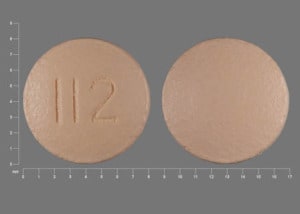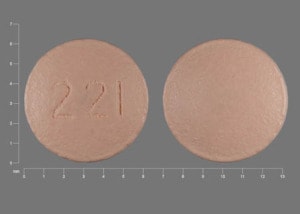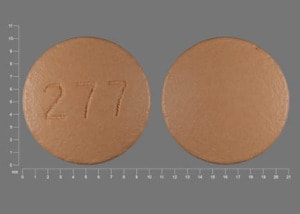What is Januvia?
- Januvia is a prescription medicine used along with diet and exercise to lower blood sugar in adults with type 2 diabetes.
- Januvia is not for people with type 1 diabetes.
- If you have had pancreatitis (inflammation of the pancreas) in the past, it is not known if you have a higher chance of getting pancreatitis while you take Januvia.
- The safety and effectiveness of Januvia have not been established in pediatric patients.
What is the most important information I should know about Januvia?
Januvia can cause serious side effects, including:
- Inflammation of the pancreas (pancreatitis) which may be severe and lead to death. Certain medical problems make you more likely to get pancreatitis. Before you start taking Januvia, tell your doctor if you have ever had:
- pancreatitis
- high blood triglyceride levels
- stones in your gallbladder (gallstones)
- kidney problems
- a history of alcoholism
Stop taking Januvia and call your doctor right away if you have pain in your stomach area (abdomen) that is severe and will not go away. The pain may be felt going from your abdomen through to your back. The pain may happen with or without vomiting. These may be symptoms of pancreatitis.
- Heart failure. Heart failure means your heart does not pump blood well enough. Before you start taking Januvia, tell your doctor if you have ever had heart failure or have problems with your kidneys. Contact your doctor right away if you have any of the following symptoms:
- increasing shortness of breath or trouble breathing, especially when you lie down
- swelling or fluid retention, especially in the feet, ankles or legs
- an unusually fast increase in weight
- unusual tiredness
These may be symptoms of heart failure.
Who should not take Januvia?
Do not take Januvia if:
- you are allergic to any of the ingredients in Januvia. See the end of this Medication Guide for a complete list of ingredients in Januvia.
Symptoms of a serious allergic reaction to Januvia may include rash, raised red patches on your skin (hives), or swelling of the face, lips, tongue, and throat that may cause difficulty in breathing or swallowing.
What should I tell my healthcare provider before taking Januvia?
Before you take Januvia, tell your doctor about all of your medical conditions, including if you:
- have or have had inflammation of your pancreas (pancreatitis).
- have kidney problems.
- have heart failure.
- are pregnant or plan to become pregnant. It is not known if Januvia will harm your unborn baby. If you are pregnant, talk with your doctor about the best way to control your blood sugar while you are pregnant.
- Pregnancy Registry: If you take Januvia at any time during your pregnancy, talk with your doctor about how you can join the Januvia pregnancy registry. The purpose of this registry is to collect information about the health of you and your baby. You can enroll in this registry by calling 1-800-986-8999.
- Are breastfeeding or plan to breastfeed. It is not known if Januvia will pass into your breast milk. Talk with your doctor about the best way to feed your baby if you are taking Januvia.
Tell your doctor about all the medicines you take, including prescription and over-the-counter medicines, vitamins, and herbal supplements.
Know the medicines you take. Keep a list of your medicines and show it to your doctor and pharmacist when you get a new medicine.
How should I take Januvia?
- Take Januvia 1 time each day exactly as your doctor tells you.
- You can take Januvia with or without food.
- Your doctor will do blood tests to check how well your kidneys are working before and during your treatment with Januvia.
- Your doctor may tell you to take Januvia along with other diabetes medicines. Low blood sugar can happen more often when Januvia is taken with certain other diabetes medicines. See "What are the possible side effects of Januvia?".
- If you miss a dose, take it as soon as you remember. If you do not remember until it is time for your next dose, skip the missed dose and go back to your regular schedule. Do not take two doses of Januvia at the same time.
- If you take too much Januvia, call your doctor or local Poison Control Center right away.
- When your body is under some types of stress, such as fever, trauma (such as a car accident), infection or surgery, the amount of diabetes medicine that you need may change. Tell your doctor right away if you have any of these conditions and follow your doctor's instructions.
- Check your blood sugar as your doctor tells you to.
- Stay on your prescribed diet and exercise program while taking Januvia.
- Talk to your doctor about how to prevent, recognize and manage low blood sugar (hypoglycemia), high blood sugar (hyperglycemia), and problems you have because of your diabetes.
- Your doctor will check your diabetes with regular blood tests, including your blood sugar levels and your hemoglobin A1C.
What are the possible side effects of Januvia?
Januvia may cause serious side effects, including.
- See “What is the most important information I should know about Januvia?" above.
- Kidney problems, sometimes requiring dialysis.
- Low blood sugar (hypoglycemia). If you take Januvia with another medicine that can cause low blood sugar, such as a sulfonylurea or insulin, your risk of getting low blood sugar is higher. The dose of your sulfonylurea medicine or insulin may need to be lowered while you use Januvia. Signs and symptoms of low blood sugar may include:
- headache
- drowsiness
- irritability
- hunger
- dizziness
- confusion
- sweating
- feeling jittery
- weakness
- fast heartbeat
- Serious allergic reactions. If you have any symptoms of a serious allergic reaction, stop taking Januvia and call your doctor right away. See "Who should not take Januvia?". Your doctor may give you a medicine for your allergic reaction and prescribe a different medicine for your diabetes.
- Joint pain. Some people who take medicines called DPP-4 inhibitors like Januvia, may develop joint pain that can be severe. Call your doctor if you have severe joint pain.
- Skin reaction. Some people who take medicines called DPP-4 inhibitors like Januvia may develop a skin reaction called bullous pemphigoid that can require treatment in a hospital. Tell your doctor right away if you develop blisters or the breakdown of the outer layer of your skin (erosion). Your doctor may tell you to stop taking Januvia.
The most common side effects of Januvia include upper respiratory infection, stuffy or runny nose and sore throat, and headache.
Januvia may have other side effects, including stomach upset and diarrhea, swelling of the hands or legs, when Januvia is used with metformin and rosiglitazone (Avandia). Rosiglitazone is another type of diabetes medicine.
Tell your doctor if you have any side effect that bothers you, is unusual or does not go away.
These are not all the possible side effects of Januvia. For more information, ask your doctor or pharmacist.
Call your doctor for medical advice about side effects. You may report side effects to FDA at 1-800-FDA-1088.
Januvia Images
Drug Interactions
A total of 295 medications are known to interact with Januvia. Use the Interactions Checker Tool.
Common Interactions Checks
General information about the safe and effective use of Januvia
Medicines are sometimes prescribed for purposes that are not listed in Medication Guides. Do not use Januvia for a condition for which it was not prescribed. Do not give Januvia to other people, even if they have the same symptoms you have. It may harm them.
This Medication Guide summarizes the most important information about Januvia. If you would like to know more information, talk with your doctor. You can ask your doctor or pharmacist for additional information about Januvia that is written for health professionals. For more information, go to www.JANUVIA.com or call 1-800-622-4477.
How should I store Januvia?
Store Januvia at room temperature, between 68°F to 77°F (20°C to 25°C).
Keep Januvia and all medicines out of the reach of children.
What are the ingredients in Januvia?
Active ingredient: sitagliptin
Inactive ingredients: microcrystalline cellulose, anhydrous dibasic calcium phosphate, croscarmellose sodium, magnesium stearate, and sodium stearyl fumarate.
The tablet film coating contains the following inactive ingredients: polyvinyl alcohol, polyethylene glycol, talc, titanium dioxide, red iron oxide, and yellow iron oxide.








